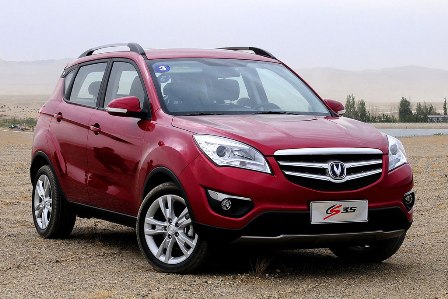By: FEMI OWOEYE
Aside contributing over 15% to the world’s GDP, China is the world’s largest market for the automotive industry. So whatever affects the industry in China is bound to infect the world with economic diarrhea.
That was why, at the height of the Corona Virus pandemic, which necessitated closure of the nation’s auto and auto parts manufacturing plants, there was a global panic.
Also noteworthy is the fact that auto manufacturing in China goes beyond the indigenous concern. Most leading and renowned automotive brands from other parts of the world also, in collaboration with leading indigenous firms, operate auto manufacturing plants in China. Examples are Hyundai (in collaboration with Great Wall-Hyundai Motors Co.Ltd), BMW (with BAIC), Mercedes-Benz (with BAIC), Ford (with Changan FAW), Jaguar LandRover (with Chery), General Motors (with SAIC, FAW and GAC), Honda, Kia, Nissan and Peugeot (with Dongfeng Motor Group), Mitsubishi (with Soueast and GAC), Toyota(GAC and FAW), Volkswagen (with FAW, SAIC and GAC) and Mazda (with FAW and Changan), among others.
Similarly,, leading Chinese automotive brands have manufacturing presence outside Chinese shores. For instance, the entire range of Changan is manufactured in Nigeria at VON assembly plant by Stallion Group.
The launch of the new models beginning of this year adds to the range and shows the company’s commitment towards bringing feature packed best in class quality in affordable range to the Nigerian customers.
The company has sales and service outlets in 7 locations across the country, two in Lagos and one each in Abuja, Ibadan, Kano, Enugu and Port Harcourt.
The company has also invested in a state-of-the-art central auto parts and service center at Orile Lagos to support the distribution of genuine parts across the nation for the upkeep of these vehicles.
That was why, following the nation’s lock-down removal, automobile and auto parts makers based in China as well as Chinese vehicle manufacturers operating in other countries, including Stallion Changan in Nigeria, embarked on precautions and measures to prevent transmission of Corona virus. First, before reopening, automotive factories were disinfected.
Indeed, from recent weeks, the scene inside a typical Chinese auto factory creates a picture of what is normally seen in acidic science laboratories.
Reason: Upon resumption, factory operatives were provided with protective Equipments (PPE).
Factory operatives have had to undergo tests to ensure they are virus-free before being let into the factories.
Other measures put in place to further keep Corona Virus at bay include: Modification of production lines to keep factories workers well apart as well as introduction of plastic shields, curtains and full protective equipment.
As a matter of routine, equipment and tools used in factories are disinfected and thoroughly cleaned after every manufacturing shift. And office workers are encouraged to work from home.
Moreover, cars and auto parts produced are sanitized before they are sold and shipped to rest of the world.
Similar precautionary measures are adhered to in the process of manufacturing and sales of Changan brand in Nigeria.
To curb the threat of COVID- 19 Spread, elaborate check / sanitization is done by Stallion Changan’s aftersales and sales teams for every car.The technicians wear PPE and meticulously disinfect the Key interior and exterior touch point areas to live up to the brand ethos of Lasting Safety.
Changan, which is quickly emerging as the fastest growing brand in Nigeria for its value for money proposition, is also supporting the local economy and workforce in the COVID-19 Era.
According to Stallion Group’s GM, Marketing, Ms. Arpita Roy Luthra, in a recent media statement, the service facilities offer preventive maintenance, mechanical and electrical repair to body shop and paint booth and are periodically trained by Changan to ensure best service delivery.
“The 4 years of history with minimal or no complaint by major clients is a testimony to the upkeep of the brand’s service commitment,” Ms Luthra pointed out.
As a result of the foregoing measures, which culminated in renewed trust from auto buyers, Chinese auto industry has recorded a surge in sales.
As reported by China Global Television Network (CGTN) mid-May, for the first time in almost two years, car sales in China swelled in April, “leaving many major Chinese and foreign auto makers with hopes of a speedy sales recovery.”

Foreign auto makers were reported to have been pleased by the bump in sales.
For instance, Sino-German joint venture FAW-Volkswagen and Volvo China, were reported to have, in April alone, delivered more than 165,000 vehicles and 14,700 cars respectively
According to CGTN report, Vehicle sales in China exceeded two million in April, up 4.4 percent from a year earlier, ending 21 months of declines in the world’s largest auto market, according to China Association of Automobile Manufacturers.
Although it’s not yet a total win, as the rest of the world still battles the pandemic, consumer confidence in auto brands connected to China could not have been achieved, had the auto makers not taken steps to ensure that automobiles and auto parts made in China are Virus free.




